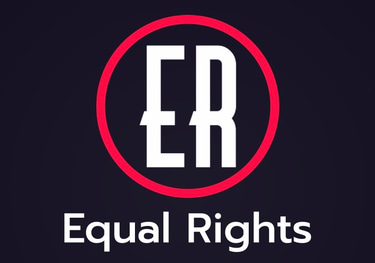Understanding Reproductive Rights & Healthcare Access
Kylo B
4/19/2024
Understanding Reproductive Rights & Healthcare Access
Reproductive rights and healthcare access are fundamental aspects of individual autonomy, equality, and public health.
The ability to make informed decisions about reproductive health, including contraception, pregnancy, and abortion, is essential for ensuring bodily autonomy and well-being.
In this article, we explore the concept of reproductive rights, the importance of healthcare access, and the challenges and advancements in this critical area of public policy.
Defining Reproductive Rights
Reproductive rights encompass the rights of individuals to make informed decisions about their reproductive health and to have access to healthcare services that support those decisions.
Key components of reproductive rights include:
Access to Contraception: The ability to access and use contraceptive methods to prevent unintended pregnancies.
Pregnancy & Childbirth Choices: The right to make decisions about pregnancy, childbirth, and parenting, including access to prenatal care and childbirth services.
Abortion Rights: The right to access safe and legal abortion services, free from barriers and stigma.
Sexual Health Education: Comprehensive education about sexual health, reproductive anatomy, contraception, and sexually transmitted infections (STIs).
Importance of Reproductive Healthcare Access
Bodily Autonomy: Reproductive healthcare access is essential for individuals to exercise control over their bodies and reproductive choices.
Public Health: Access to reproductive healthcare services contributes to improved maternal and infant health outcomes, reduces unintended pregnancies, and prevents STIs.
Gender Equality: Reproductive rights are essential for promoting gender equality by ensuring that individuals have equal opportunities to make decisions about their reproductive futures.
Social Justice: Access to reproductive healthcare is a matter of social justice, particularly for marginalized communities facing barriers to care.
Challenges in Reproductive Healthcare
Despite the importance of reproductive rights, several challenges persist:
Legal Restrictions: Legal barriers, such as restrictive abortion laws and regulations, limit access to reproductive healthcare services.
Financial Barriers: Affordability of healthcare services, including contraception and abortion, can be a significant barrier for individuals with limited financial resources.
Stigma & Discrimination: Stigma surrounding reproductive choices, particularly abortion, can lead to shame, discrimination, and limited access to care.
Lack of Comprehensive Education: Inadequate sexual health education in schools and communities can lead to misinformation and limited awareness of reproductive rights and healthcare options.
Advancements & Solutions
Policy Reforms: Advocacy efforts aim to overturn restrictive laws and implement policies that protect and expand reproductive rights, including access to contraception and abortion services.
Healthcare Expansion: Expanding access to affordable and comprehensive healthcare coverage, including reproductive healthcare services, through public and private insurance programs.
Community Education: Providing comprehensive sexual health education in schools and communities to empower individuals with knowledge about their bodies, contraception, and reproductive rights.
Supportive Services: Investing in reproductive healthcare clinics, family planning centers, and nonprofit organizations that provide confidential and nonjudgmental care.
The Role of Advocacy & Public Engagement
Advocacy and public engagement are crucial for advancing reproductive rights and healthcare access:
Advocacy Campaigns: Grassroots and national advocacy campaigns mobilize support for reproductive rights through policy advocacy, public education, and direct action.
Community Partnerships: Collaborations between healthcare providers, advocates, policymakers, and community organizations strengthen efforts to protect and expand reproductive rights.
Voter Engagement: Voting for candidates and policies that prioritize reproductive rights and healthcare access is essential for advancing progress in this area.
Understanding reproductive rights and healthcare access is essential for promoting individual autonomy, gender equality, and public health.
By addressing legal, financial, and social barriers to care, we can ensure that all individuals have the ability to make informed decisions about their reproductive health and access the healthcare services they need.
Continued advocacy, education, and policy reforms are critical for advancing reproductive rights and creating a society where reproductive healthcare is accessible, equitable, and respected as a fundamental human right
